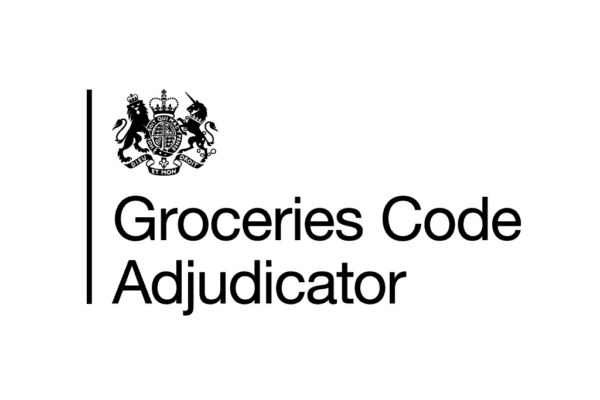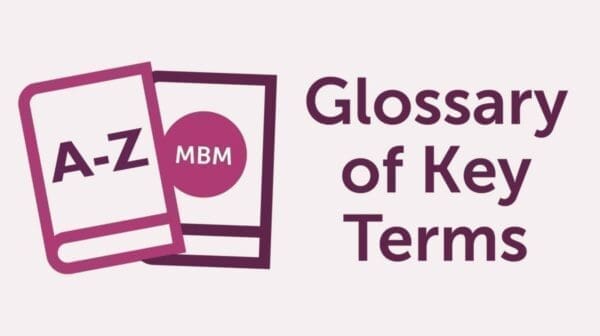The Outgoing Adjudicator Christine Tacon
Christine Tacon, the current Groceries Code Adjudicator is nearing the end of her 5-year term overseeing the day to day workings of the Code. We spoke to her at her offices inside the Competition and Markets Authority in Canary Wharf.
We wanted to understand, from her perspective, what she feels she has achieved in the past 5 years, what she regrets, and most importantly, whether she feels her self-styled ‘collaborative’ approach to the implementation of the Code with the major supermarkets has been a success.
MBM: Of the many improvements you have made to supermarket buying methods which are you most proud of?
Christine Tacon: Forensic Auditing, where getting the retailers to only go back 2 years. This has, I know, made a massive impact to even the very biggest of suppliers. Those, that arguably, could look after themselves. It’s gone from 45% of suppliers saying it’s an issue to 7%. For me, that is the biggest improvement.
I’m also proud of drop and drive because that was always going to be a very difficult nut to crack. The fact so many retailers have now implemented good faith receiving is great. What that is doing is taking out admin at depots, admin for finance people on both sides. I think everyone has realised that this is a far more efficient way of doing business.
Another, very small one, is the finance to finance helpline. Now, if anyone is ever owed any money, instead of having to speak to a buyer, finance to finance can sort it out.
MBM: And one that you regret not achieving or is still on the to-do list?
Christine Tacon: I don’t know what else I could have done, but I’ve not made enough progress as I wanted to on forecasting. Forecasting is a huge win-win for both parties. It stops a huge amount of waste for the supplier. It also makes sure you get better availability on the shelf, and so there’s a real win-win there. I have put a lot of pressure on them. I think every retailer will tell me that they are improving their forecasting systems, but I still feel there is more to go for.
MBM: The supermarkets are/were notorious for their aggressive tactics towards suppliers. You deliberately decided to take a collaborative approach. What do you think would have happened if you had taken a more combative stance?
Christine Tacon: It evolved. Obviously, I was meeting with all the Code Compliance Officers. They were saying, ‘we think we’re compliant but let us know if you think otherwise’. I can’t investigate without evidence, so if suppliers don’t give me evidence, where do I start? If all you have is some anecdotes, and often, they (the suppliers) won’t even tell me which retailer it is! Then, where do I go?
That’s why going out and getting myself involved with suppliers on a significant number of occasions is so important. So, if all I’m ever hearing is anecdotes, I haven’t got evidence to investigate. I’m almost in a situation where I may as well work with the retailers and say, ‘well I hear you might be doing such and such, you might want to go and have a look at it’. That has evolved into them responding. It has enabled me to work with limited evidence on a large number of fronts at a great pace.
Sticky Learning ® is 7 times more effective than 1-day training courses. Plus, you will get a Chain of Evidence proving your Return on Investment. Discover soft skills training that changes behaviours long term.

MBM: The Code has a lot of potential ‘grey’ areas. For example, how long is ‘reasonable notice’ and what is ‘without duress’? Do you think a more robust approach with more formal investigations (and potential sanctions) would have clarified things more? Perhaps created precedents?
Christine Tacon: I call them ‘woolly’! For example, I’ve said right from the beginning that there is no such thing as a breach of paragraph 2 (Principle of fair dealing). Paragraph 2 is an overall umbrella. You can’t just say it was unfair, it has to be a breach of any other paragraph.

So, if you look at one of the investigations, it was paragraph 5 (No delay in payments) and paragraph 16 (Duties in relation to delisting), along with a breach of paragraph 2.
Every delist has to be done on a case by case basis. If you, as a supplier, have been delisted and you don’t think the notice is reasonable go to the GCA website. Go through the checklist of everything you have to talk about with delisting. Then, write to them (the retailer) and say, ‘I don’t think in this case it’s reasonable notice’, because, ‘I think such and such is reasonable’. You will probably get an extension.
MBM: Only c50% of suppliers have been trained in the Code 5 years or so down the line. Why do you think this is?
Christine Tacon: I didn’t start off by promoting training. When I first started, my big push was to get the trade associations to bring me evidence of issues. You (the trade associations) protect the anonymity of your suppliers, and you are then saying as a collective that our members are experiencing this or that. That’s where forensic auditing came from.
It was a trade association saying that our members have an issue with forensic auditing. That allowed me to raise it as an issue. So, I kept pushing on the trade association front to bring me issues. However, I wasn’t getting anywhere, so I then thought I will turn it over to the trade associations and say, ‘if you are not going to bring me what the issues are, why don’t you train your members?’. I think that’s actually what got the whole (training) thing started.
If you train your members, then you will hear at the training sessions just exactly what the issues are that your members have. One of the reasons training is so important is that these things are best headed off immediately.
MBM: How many retailers do you think will be covered by the Code by 2025?
Christine Tacon: It’s the decision of the Competition and Markets Authority based on the £1billion turnover (threshold). But, if they don’t have the access to the information to know if it’s a £1billion turnover then it’s worth telling them. If there are other arguments as to whether other people should be covered that aren’t at the £1billion turnover, that’s probably something to direct more at the policymakers.
However, again, trade associations would be the most powerful group to actually consolidate the information. In terms of a 2025 prediction, if the £1billion turnover (threshold) doesn’t change, then in my view, a maximum of 3 more retailers will be added.
MBM: What would your one piece of advice be to your successor?
Christine Tacon: Get out there to where the suppliers are. Go to where they are and listen to them. You will hear very little if you just stay in the office. I found, that when I went out there and spoke to people face to face, they would always tell me what was going on.

MBM: Where do you do your weekly shop?
Christine Tacon: Well, I don’t is the answer to that – I’m not at home enough! My husband does most of the purchasing. I do deliberately try and shop in as many of the supermarkets as I can. When I meet the Code Compliance Officers its nice to be able to talk about their stores.
MBM: Best supermarket Head Office coffee?
Christine Tacon: I’ve never actually noticed their coffee! You are there with your message, and it’s important, so you just get on with it!
MBM: And what is next for you? – GSCOP training!?
Christine Tacon: I don’t think so! I feel I have a lot of experience in the grocery sector that I want to contribute. Also, I really loved being in a role that’s been able to make a difference. I suspect that everything I look at in the future I will be comparing against what I’ve done here. I feel I’ve packaged it (the Code) up as far as I’m going to take it, so somebody else can come in with some new ideas.
So, the GCA role will be the benchmark that I compare everybody against. Maybe the Government might think here’s a very exciting role and tempt me with that, or it may just be something within the industry.




